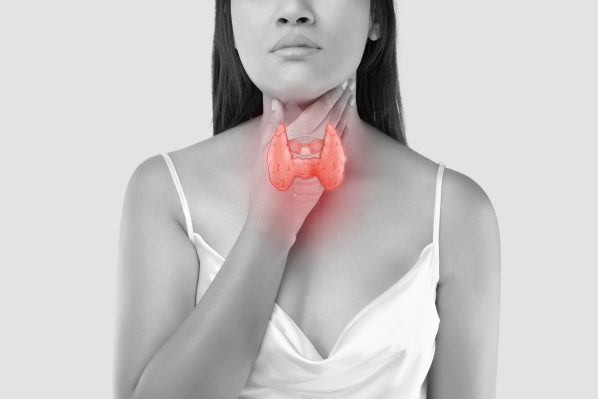Hypothyroidism, Thyroid gland, Thyroid hormones, Iodine
Description : Hypothyroidism is a disease in which your thyroid gland does not produce enough thyroid hormones,
Article Details :
What is hypothyroidism?
Hypothyroidism is a disease in which your thyroid gland (a butterfly-shaped organ located in front of your wind pipe) does not produce enough thyroid hormones. The latter are crucial for the regulation of your weight, internal temperature and energy levels.
This disease affects more women than men and is most common among people above the age of 60. In addition, this condition may be discovered either when you are experiencing symptoms like fatigue, depression, weight gain, increased sensitivity to cold and hoarseness of voice or during routine visits at your doctor’s office.
Once you have been diagnosed with hypothyroidism, your doctor will prescribe medications which are safe, simple and effective, providing the necessary hormones to bring your body back to normal.
Causes of hypothyroidism
Insufficient production of thyroid hormones can result from many causes, some of them being autoimmune diseases, thyroid surgery, radiation therapy and certain medications.
Autoimmune disease
An autoimmune response is when your body recognizes your own organ or body as foreign and hence send fighter cells to destroy it. The most common cause of hypothyroidism is Hashimoto’s thyroiditis, whereby inflammation reduces your thyroid function.
Thyroid surgery
If after a thyroid surgery your entire thyroid gland has been removed, your body will no longer be able to produce thyroid hormones and therefore you will develop hypothyroidism. As a result, for the rest of your life you will be placed on thyroid medications to maintain a normal body function. However, if ever only a portion of thyroid gland has been removed, only blood tests will confirm whether your body is producing enough thyroid hormones for your body to function well.
Treatment for hyperthyroidism
If your thyroid gland is producing too much thyroid hormones, you are likely to suffer from hyperthyroidism and therefore your doctor will prescribe medications to lower your thyroid hormone level. As a result, your thyroid hormone level will drop. However, occasionally it may happen that it goes far too low causing hypothyroidism.
Radiation therapy
Many patients diagnosed with cancer of the neck or head like lymphoma and leukaemia will undergo radiation therapy. This kind of treatment will reduce or stop the production of thyroid hormones, leading to hypothyroidism.
Iodine deficiency
Lack of iodine in the body can cause hypothyroidism on the long run. Iodine is primarily found in seafood and iodized salt.
Risk factors for hypothyroidism
There are several factors which may contribute to hypothyroidism, some of them are listed below:
- Female gender
- Radiation therapy to the neck
- Age greater than 60 years old
- Family history of thyroid disease
- Previous thyroid surgery
- Family history of autoimmune disease (type 1 diabetes or celiac disease)
- History of lithium use (a medication used to treat bipolar disorder)
- Being of Asian or Caucasian ethnicity
- Suffering from Turner or Down syndrome
Signs and symptoms of hypothyroidism
Signs and symptoms of hypothyroidism are difficult to identify as they vary from person to person. Usually symptoms become more obvious with increasing age. In addition, the first symptoms are fatigue and weight gain. Symptoms may occur over the course of many years and if ever you suspect that you are suffering from hypothyroidism, consult your doctor immediately. Some signs and symptoms are listed below:
- Depression
- Fatigue
- Constipation
- Dry skin
- Increased sensitivity to cold temperature
- Muscle weakness
- Pain and stiffness of joints
- Weight gain
- Decreased sweating
- Increased cholesterol level
- Slower heart rate
- Thinning of hair
- Impaired memory
- Menstrual irregularities
- Fertility problems
- Hoarseness of voice
- Puffy face
Making a diagnosis
Hypothyroidism can be diagnosed by medical evaluation and blood tests.
Medical evaluation
Your doctor will usually start by taking a full medical history followed by a thorough physical examination, whereby signs of hypothyroidism will be identified if present.
Blood tests
The only way to confirm the diagnosis of hypothyroidism is by doing blood tests:
- Thyroid-stimulating hormone (TSH) test: this test measures how much hormones (TSH) your pituitary gland (a pea-sized gland found in your head) is producing. If you are suffering from hypothyroidism, your TSH level will be high as a measure to stimulate your thyroid gland to produce more hormones.
- Thyroxine (T4) level test: T4 is produced by the thyroid gland and when it is low, accompanied by a high TSH level, the diagnosis of hypothyroidism is made.





